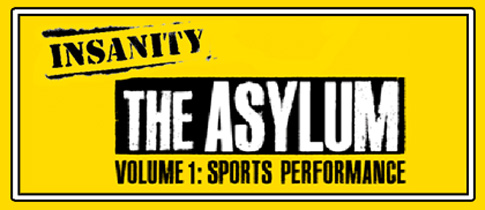You’ve seen that guy. He hangs out at your local gym, and spend more time touching up his hair in the wall length mirrors and smoothing down his mustache than anything else. He’s rocking a little Buddha belly over his cowboy belt, and looks arrogantly down the length of his nose at everybody else except his client, whom he has struggling to do one arm pushups in the corner. Ok, maybe he’s only at my gym, but I’m sure you have your own variation at yours. He’s the ‘local sketchy trainer’, and when you look at him you can’t help but wonder if he’s actually qualified or simply a complete hack, a confidence man that’s conned a couple of naïve innocents into handing over their cash for a couple of months before they quit in disgust. So how to tell if your trainer is actually qualified to train you? The first and simplest step is to ask for their qualifications. Confused by the seemingly endless acronyms that they then give you? Here’s a breakdown of what it all means.
Certified Personal Trainer (CPT): This the ‘gold standard’ of personal training certification programs and is issued by the National Commission for Certifying Agencies (NCCA). If the trainer has a CPT after their name, you know they’re good to go. If you want a little more info, ask were they earned their certification; they should be from an NCCA-accredited organization like the National Exercise and Sports Trainers Association (NESTA), National Exercise Trainers Associaton (NETA), National Strength and Conditioning Association (NSCA, the National Academy of Sports Medicine (NASM) or the Cooper Institute (CI).
Certified Fitness Instructor (CFI): If you’re looking to join an aerobics class, check to see if the trainer is certified. Remember, just because the class has fifty people doesn’t mean anybody knows what they’re doing (though it’s a good sign). Make sure the class is taught by a certified fitness/health instructor, with the best being an ACE or ACSM (American College of Sports Medicine)-certified instructor.
Exercise Specialists (ES): These guys are a little more technical, and provide a wider range of training, from exercise assessment, training, rehabilitation and lifestyle coaching for those at risk of cardiovascular, pulmonary or metabolic disease. Look for an ES certified by the ACSM!
Registered Clinical Exercise Physiologist (RCEP): Another ACSM certificate, the RCEP performs exercise testing, prescription, counseling, education and evaluation, and must have a Master’s Degree in exercise science, exercise physiology or kinesiology.
Certified Strength and Conditioning Specialists (CSCS): The Certified Strength and Conditioning Specialist is for trainers who put together and then implement strength training and conditioning programs for athletes in a team setting. It’s the only one of its kind from the NCCA.
So there you have it. The trick is to know which agencies can certify trainers, and which certificates to look for. That way, when you approach a trainer and ask them what their qualifications are, your eyes don’t need to glaze over when they begin to spout acronyms. Listen for the right ones, and denounce the fakers with righteous zeal and scorn should they fail to make the list!


Funny, i was just thinking about that